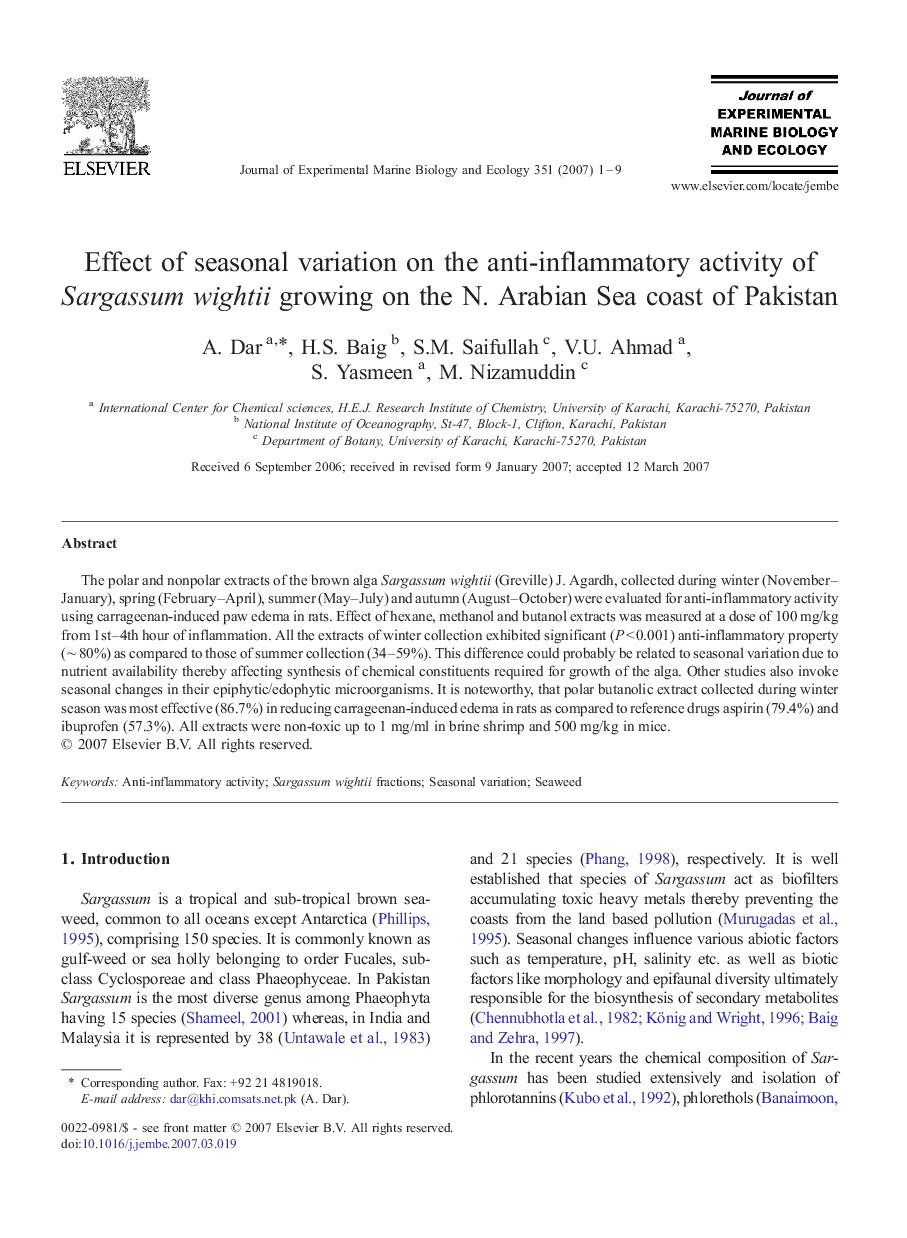| Article ID | Journal | Published Year | Pages | File Type |
|---|---|---|---|---|
| 4397532 | Journal of Experimental Marine Biology and Ecology | 2007 | 9 Pages |
The polar and nonpolar extracts of the brown alga Sargassum wightii (Greville) J. Agardh, collected during winter (November–January), spring (February–April), summer (May–July) and autumn (August–October) were evaluated for anti-inflammatory activity using carrageenan-induced paw edema in rats. Effect of hexane, methanol and butanol extracts was measured at a dose of 100 mg/kg from 1st–4th hour of inflammation. All the extracts of winter collection exhibited significant (P < 0.001) anti-inflammatory property (∼ 80%) as compared to those of summer collection (34–59%). This difference could probably be related to seasonal variation due to nutrient availability thereby affecting synthesis of chemical constituents required for growth of the alga. Other studies also invoke seasonal changes in their epiphytic/edophytic microorganisms. It is noteworthy, that polar butanolic extract collected during winter season was most effective (86.7%) in reducing carrageenan-induced edema in rats as compared to reference drugs aspirin (79.4%) and ibuprofen (57.3%). All extracts were non-toxic up to 1 mg/ml in brine shrimp and 500 mg/kg in mice.
